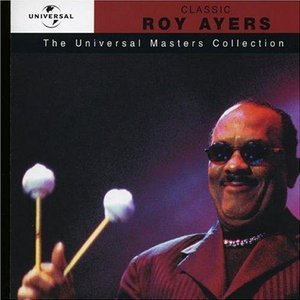
Artists don’t always feel the same as others feel about their work. I was being an artist, being sensitive and technical as artists are. I was with PolyGram that was the big label that I was with for the longest, like 12 years. You don’t always know who you’re making that soul connection with. I couldn’t get my album played over the so-called smooth jazz stations.

I’m celebrating my 40th year in show business this year. I always had this energy level that made me want to come to New York. It’s a wonderful feeling just being in this creative motif. But I did mine through a production company. Most artists have contracts directly with the record company, and when they do music, all of their music is owned by the record company. They only talk to them at the end of the song. Most musicians count at the beginning, and never count and talk to their musicians after that. Now I get exposure first with people directly in the clubs. It’s about continuing to try to find new ways to sell records. When a person sees my record on the shelf, it eliminates someone else’s record from being sold. Only a certain number of people go to a store over the period of a year. I listen as I play I’m not caught up in defining the type of music I play. My style of playing has been characterized as smooth jazz and acid jazz. People are always defining and re-defining music. People in England were coming up to me, saying, My mother and father turned me on to your music. I’d definitely love to play in Nashville again. I’m just telling you from my heart, I’m so in love with life. On top of that, I have the gift to play music and make people happy through that. Having good health, being able to breathe and be happy, that’s one of the most beautiful gifts. I was wrong every time!ĭJs and people in the street know what they like. Almost every song I ever recorded that was a hit at the majors that the promotional people picked I didn’t think it would be a hit. The youth is so quick and alert.Īrtists don’t always know. I don’t like rap that you can’t understand. My friends would talk to me about that, about tripping on all this stuff, but you know what I tripped on? I started buying property. Some people really trip on success or popularity. But I used to talk to the other musicians while the track was playing. When I was recording from ’70 to ’82, I always played piano and laid the tracks down. It comes out of a particular culture that is African in origin, but influenced by 250 years of slavery, as well as other forms of racial oppression. What we call soul has been around a long time. It carries a message, and we, the musicians, are the messengers. The true beauty of music is that it connects people. Soul has no musical geographical or racial boundaries.

And downloading and pirating have also put pressure on the majors. The majors, they have to control the distribution, the record outlets, the radio and, in some cases, even the venues. Those who have enjoyed Kweli’s music in the past will find much to enjoy on Eardrum.You grow and learn a lot about the industry and what happens behind closed doors over the years. Still it's unfortunate since he has done little to earn such commercial neglect other than to continue to produce quality music. In truth, if Kweli is irrelevant in 2007 it is his own fault. Kweli’s trademark lisp sounds particularly compelling over the rheumatic thump and squeal of Madlib’s “Everything Man,” while the once mighty Pete Rock proves that he’s still capable of turning out stellar material with the defiantly old-school “Holy Moly.” The album becomes most tiring when Kweli gripes about his now marginalized status as an underground rapper abandoned by a fickle fanbase. Yet there are many pleasures to be found here. The problem is that Kweli’s conception of quality, self-righteously indignant raps over dusty sample based beats, is something of an anachronism in 2007. Though he is an undeniably talented rapper, Talib Kweli has been in something of a creative holding pattern since the release of 2002’s Quality, an album whose unyielding title seems to have provided Kweli with his creative mantra.


 0 kommentar(er)
0 kommentar(er)
